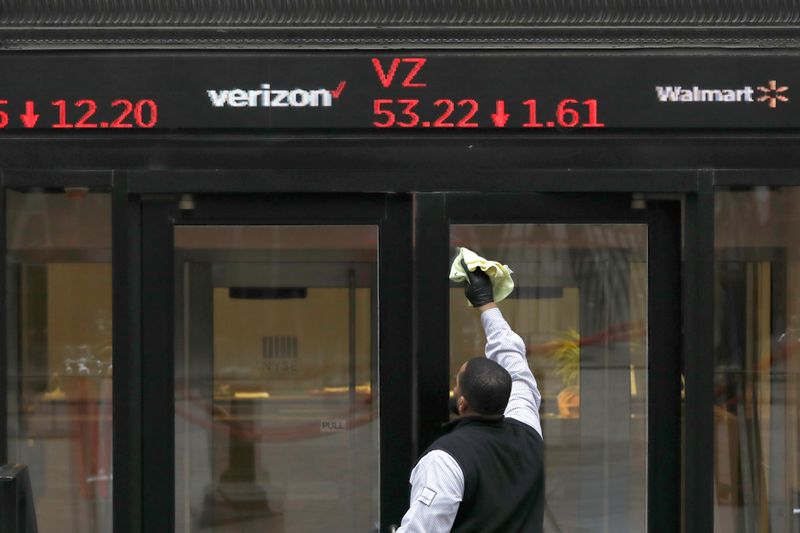By Medha Singh and Sanjana Shivdas
(Reuters) - The Dow Jones index was on course on Thursday for its worst performance since Wall Street's "Black Monday" crash of 1987, as President Donald Trump's move to curb travel from Europe added to growing corporate distress over the coronavirus pandemic.
Trump announced several steps to help small businesses, but failed to convince traders he would be able to blunt the outbreak's impact on the domestic economy, ending the longest bull run in Wall Street history and driving the Dow into a bear market.
With all three main indexes down more than 3%, and record numbers of stocks hitting 52-week lows, the S&P 500 and Nasdaq looked set to follow at the close.
Airline stocks <.SPCOMAIR> tanked 11%, while cruise liner Carnival Corp (N:CCL) plummeted after its Princess Cruises said it would suspend global operations for two months.
Boeing Co (N:BA) fell another 13% as J.P.Morgan abandoned its long-term backing for the planemaker's shares, a day after the company signaled major cutbacks and drew on a large chunk of additional reserve cash.
The company, one of Wall Street's most influential, has lost nearly 40% of its value this week and its recent actions now look representative of the fear infecting corporate America over the outbreak's financial impact.
United Airlines (O:UAL) tumbled 12.4% after saying it had borrowed $2 billion to cope with the unprecedented disruption to the industry from sweeping business travel and holiday cancellations.
"The economy is going to grind to a halt in the next month and the recession risk is real now," said Zhiwei Ren, managing director at Penn Mutual Asset Management in Horsham, Pennsylvania.
Wall Street's fear gauge (VIX) jumped to its highest since the 2008 financial crisis.
The MSCI world equity index (MIWD00000PUS) also crashed into a bear market in early trading, with declines deepening after the European Central Bank held off on cutting interest rates, sending the pan-European STOXX 600 index (STOXX) to its worst day on record. (EU)
Expectations are running high for a second rate cut by the Federal Reserve this month, but analysts question whether that would address investors' underlying concerns. [US/]
The Federal Reserve Bank of New York briefly offered some support for shares by saying it would increase Treasury purchases and introduce new repo operations. That bounce faded quickly.
"There's very, very little (the Fed) can do so if we got into recession; monetary policies are not going to help us too much," Ren said.
Worries about corporate credit are growing as prices of bond funds take a hit and companies start to draw on existing credit lines.
Trading on Wall Street was halted minutes after the opening bell with the S&P 500 sliding 7% and triggering a 15-minute cutout as traders fled to the perceived safety of bonds and the Japanese yen.
At 1:05 p.m. ET, the Dow Jones Industrial Average (DJI) was down 814.74 points, or 3.46%, at 22,738.48, while the S&P 500 (SPX) was down 90.55 points, or 3.30%, at 2,650.83. The Nasdaq Composite (IXIC) was down 267.42 points, or 3.36%, at 7,684.63.
In a month of chaos on markets, the Dow Jones has now handed back all of the past two years' gains, but remains around 14% above levels from Nov 8, 2016, a day before Donald Trump was elected as the 46th President of the United States.

Declining issues outnumbered advancers almost 18-to-1 on the NYSE and 12-to-1 on the Nasdaq.